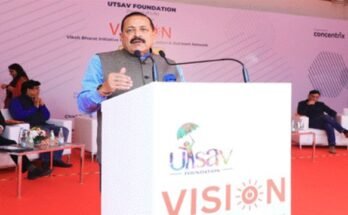New Delhi : India’s renewable energy sector is expected to generate more than 330,000 new jobs over the next five years (2017-2022), a report released on Wednesday said, adding that it would also improve energy security, enhance energy access and help mitigate climate change.
The report stressed that India’s clean energy initiatives can also help address poverty in rural communities by providing steady incomes, healthcare benefits and skill-building opportunities to unskilled and semi-skilled workers.
It said that apart from creating new jobs in the sector, India’s clean energy push can improve energy access in India’s poorest rural communities, thereby allowing more time for children to study after school, greater productivity and income for families, and improved health outcomes.
The report— Can renewable energy jobs help reduce poverty in India ?—was released by the World Resources Institute (WRI), an international research organization. It emphasized that these opportunities can support India’s rural poor by offering an alternative to subsistence farming.
Prior to the Paris Climate Agreement, the central government announced that India will install 175 gigawatt (GW) of renewable power by 2022 of which 100GW will be from solar power and 60GW from wind power.
“Wind and solar growth can be a win-win opportunity for India, helping the country secure a clean energy future while tackling poverty. But unless decision-makers act, this growth will leave the rural poor behind, unable to attain the thousands of new jobs created,” said Bharath Jairaj, director of WRI India’s energy programme and lead author of the report.
The report stated that unskilled and semi-skilled workers in rural areas face entry barriers to clean energy employment and training programmes have failed to address such issues.
For instance, the report revealed that renewable energy employers interviewed for the study said “unskilled workers lack the technical and soft skills needed to succeed in full-time positions”.
“Most training institutes refuse to admit applicants without a secondary school education, locking out 60% of poor Indians who are either illiterate or received just a primary school education. Many training programmes are in urban centres, far from rural communities where most of India’s poor families live,” the study explained.
Apart from that, women face unique, additional gendered challenges as “household duties, childcare obligations and gender norms make it nearly impossible for them to participate in training programmes,” the report said.
“Even when poor Indians overcome obstacles to attend training programmes, the institutes’ curricula don’t often align with industry needs, making it difficult for graduates to secure good-quality jobs,” said Pamli Deka, manager of WRI’s Electricity Governance Initiative and co-author of the report.
“In fact, we found that many clean energy employers prefer to train people they hire, because they believe that the training institutes fail to provide the required and relevant skills.”
The study recommended that private sector leaders should build capacity among unskilled and semi-skilled workers to ensure sustainability of renewable energy projects and give rural communities a sense of ownership in off-grid projects.
It further said government officials should create public training programmes that prepare the poor and less educated people— those typically shut out from training institutes and full-time positions – for employment in the clean energy sector.
It also said training institutes and civil society organization leaders should “target women and tailor skill-building programs to their specific needs, including location, hours, safety and sanitation”.
Note: News shared for public awareness with reference from the information provided at online news portals.



